Blogs are one of the best marketing strategies that you can implement for your business. Find out why in this article.
Key takeaways
- Blogging is a low-cost, high-yield marketing strategy that drives traffic, builds trust, and delivers long-term results.
- Strategic blog content converts readers into customers by educating them and seamlessly integrating purchase opportunities.
- Each blog post creates an indexed page, increasing search visibility and establishing your brand as an industry authority.
Let's face it, every marketer is looking for a bang for their buck. Traditional advertising is often expensive and fleeting — but what if you could invest in a marketing strategy that's cost-effective, high-impact, and delivers long-term results?
Blogging offers exactly that. Not only does it drive traffic to your website and boost conversions, it also positions you as an authority in your field, giving you a significant edge over competitors who aren't using this powerful tool.
Keep reading to learn why blogging is one of the best slow-burn, high-yield marketing strategies out there.
The Top 10 Benefits of Blogging for Business
Forget expensive, one-time marketing blasts — business blogging delivers sustainable growth. Below, we break down the top 10 benefits that make blogging an intelligent investment for any business.
1. Blogging Creates a Relationship Between Your Business and Potential Customers
Blogging lets you have a real conversation with potential customers, turning them into brand champions. Say you run a clothing boutique. Instead of just posting product photos on your website, blog about the clothes that you are selling.
Take Anthropologie for example. The Anthropologie blog 'stories' features everything from behind-the-scenes tales, to wedding ideas and inspiration, to fashion tips and tricks.
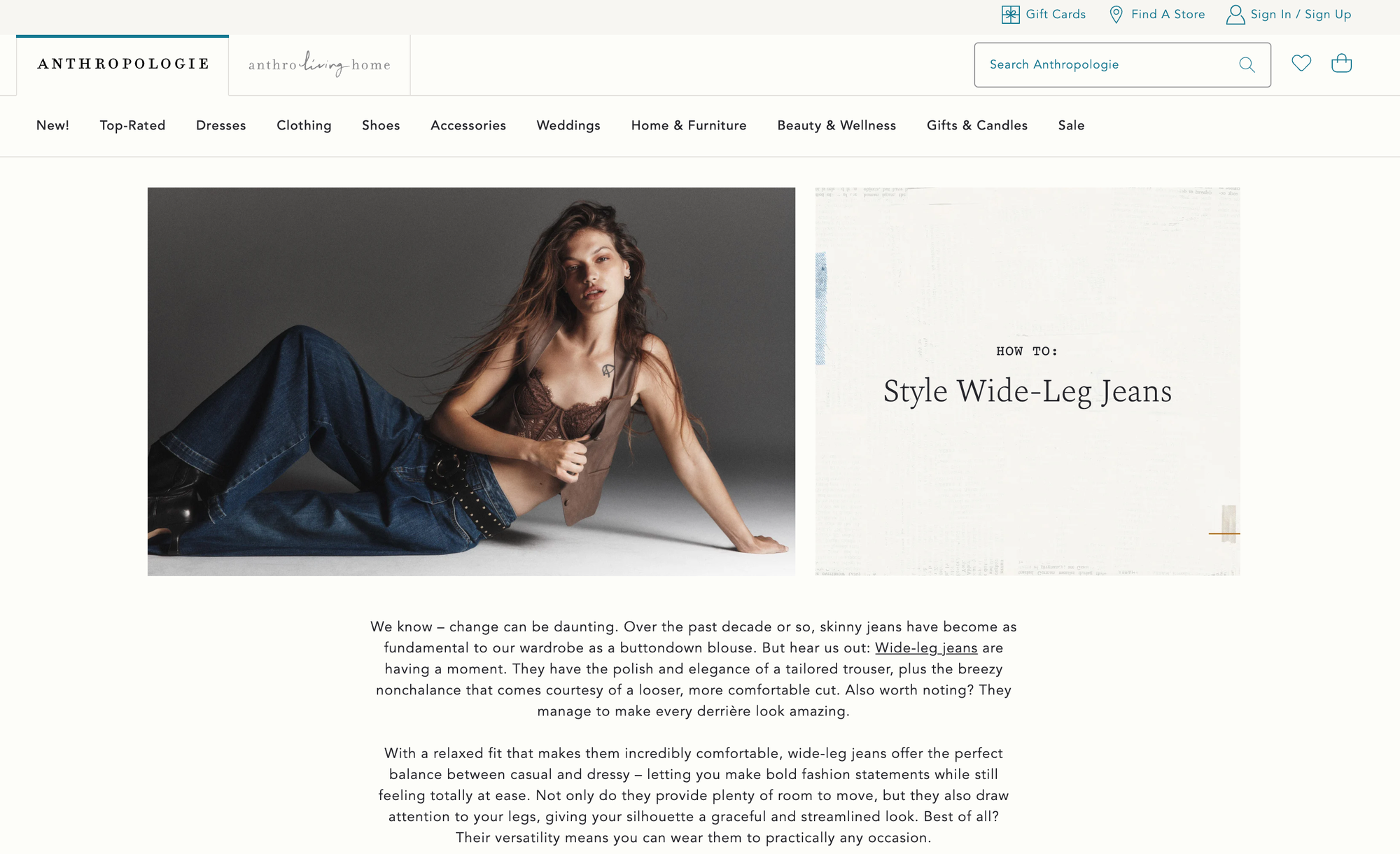
The blog teaches readers how to style clothes that they can buy in store, giving them education, advice, and also the confidence to make purchases and try out new fashion items.
Here's why it works:
- Trusted friend, not pushy salesperson: People trust recommendations from friends, and your blog fosters that same level of connection. Over time, trust translates into sales, as readers are more likely to buy items you've personally helped them style.
- Build a community: Your blog becomes a space for readers to connect over shared interests. If you have a forum or comment section on your blog, your readers can discuss fashion trends, inspire each other with outfit ideas, and relish in the shared sense of belonging.
- Engagement and brand awareness: Engaged readers are more likely to comment, share your blog posts, and keep coming back for more. In turn, this buzz keeps your brand at the forefront of their minds and attracts new potential customers. Think of it as a snowball effect. The more people interact with your blog, the more your brand name gets out there.
Sephora's Beauty Insider Community is another prime example. They host online tutorials, answer skincare questions, and encourage product reviews. It's a two-way conversation that builds trust, creates a loyal fan base, and ultimately drives sales for Sephora.
2. You Can Repurpose Your Blogs Across Social Media
Repurposing blog content lets you stretch your content creation muscles further by transforming a single blog post into a variety of engaging social media formats. We're talking bite-sized video explainers for TikTok, thought-provoking questions for discussion on Facebook groups, or even compelling headlines for eye-catching LinkedIn posts.
For example, a travel blogger might publish a blog post titled, "The Very Best Travel Experiences in Italy" which highlights unique activities and adventures available through their platform. They can repurpose this content into a series of short, engaging videos for Instagram Reels. Each video could showcase a specific experience, such as "Learning to make pasta from a Nonna in Rome" or "Going on a stargazing adventure in Valle d'Aosta."
3. A Blog Can Increase Your Conversion Rate
Stale product descriptions and generic marketing tactics can leave potential customers feeling lost in a sea of sameness. But a well-crafted blog post can be the secret ingredient for spicing up your conversion rate.
Say a prospect searching for plant-based dinner inspiration stumbles upon your blog post titled "5 Easy Hacks to Master Plant-Based Cooking." It clearly explains clever techniques to simplify plant-based cooking, such as using a pressure cooker for quick and flavorful beans or whipping up creamy sauces from cashews. Sharing valuable information with customers helps them solve dinnertime dilemmas and positions you as a trusted authority in the plant-based kitchen.
But the magic doesn't stop there. Throughout the post, strategically placed links seamlessly connect these helpful tips to relevant products in your online store. Site visitors can click directly on a link to purchase the perfect pressure cooker or browse your selection of cashews for their creamy sauce adventures.
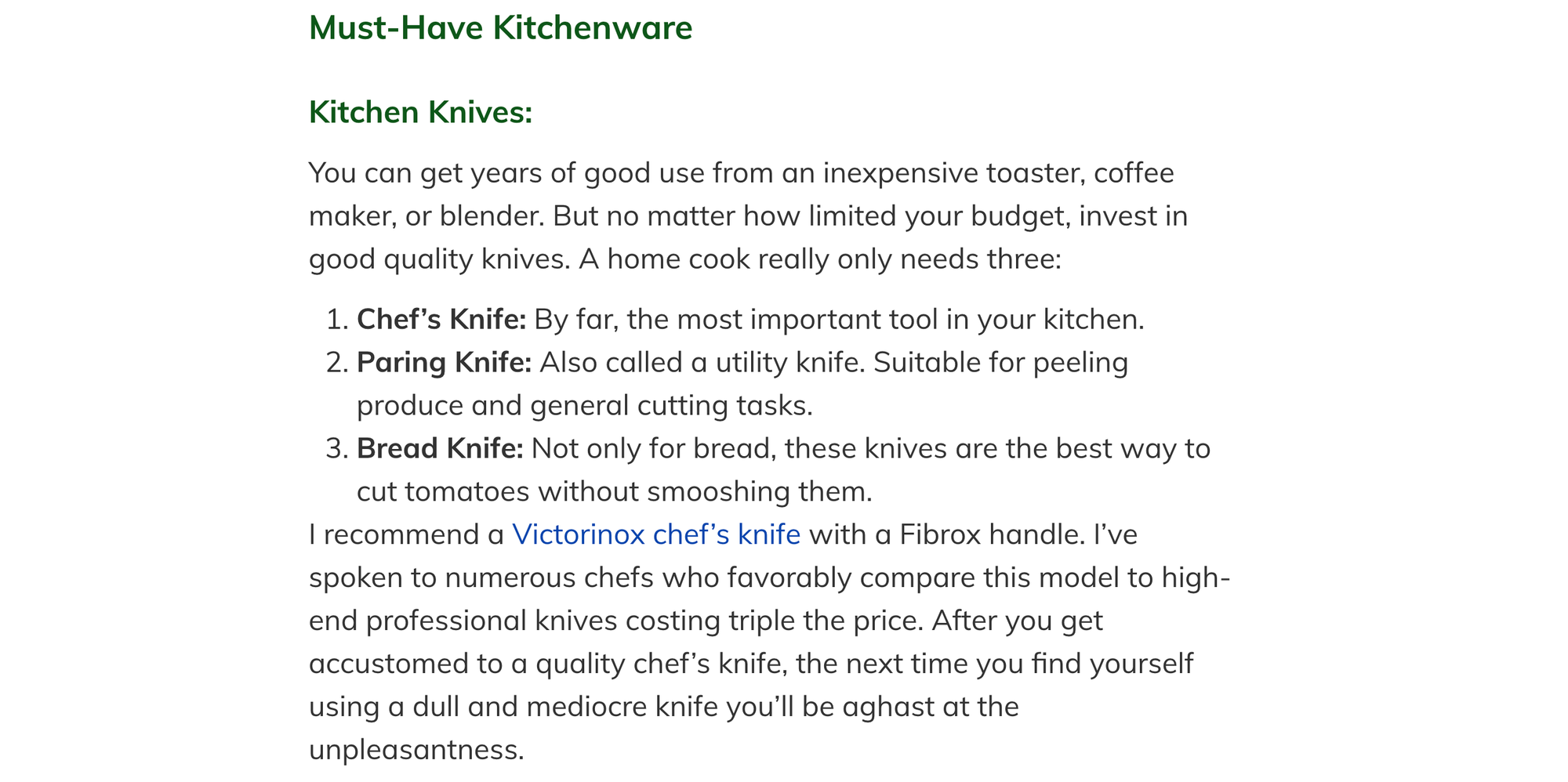
Providing genuine solutions and seamlessly integrating buying opportunities means your blog doesn't just educate – it empowers readers to take action.
4. Driving Traffic to Your Website
Blogs are excellent for driving traffic to your website. Each post you publish is another indexed page, increasing your chances of appearing in search engines.
For example, a travel agency blogging about top destinations can attract visitors searching for travel tips, ultimately leading them to book services. The key is to reach customers at all levels of the purchasing funnel - those with are just thinking about buying your product, those actively researching, and those ready to make a purchase. Even if a reader doesn't purchase with you right away, at least they now know that you are an option. The more you blog, the more opportunities you have to appear in search results and attract organic traffic.
5. You Can Become Known as a Thought Leader
Blogs can be launchpads for lasting influence. Take Arianna Huffington, whose blog, The Huffington Post, tackled politics and social issues with a fresh perspective. She became a thought leader and ultimately, her blog transformed into a major online news platform.
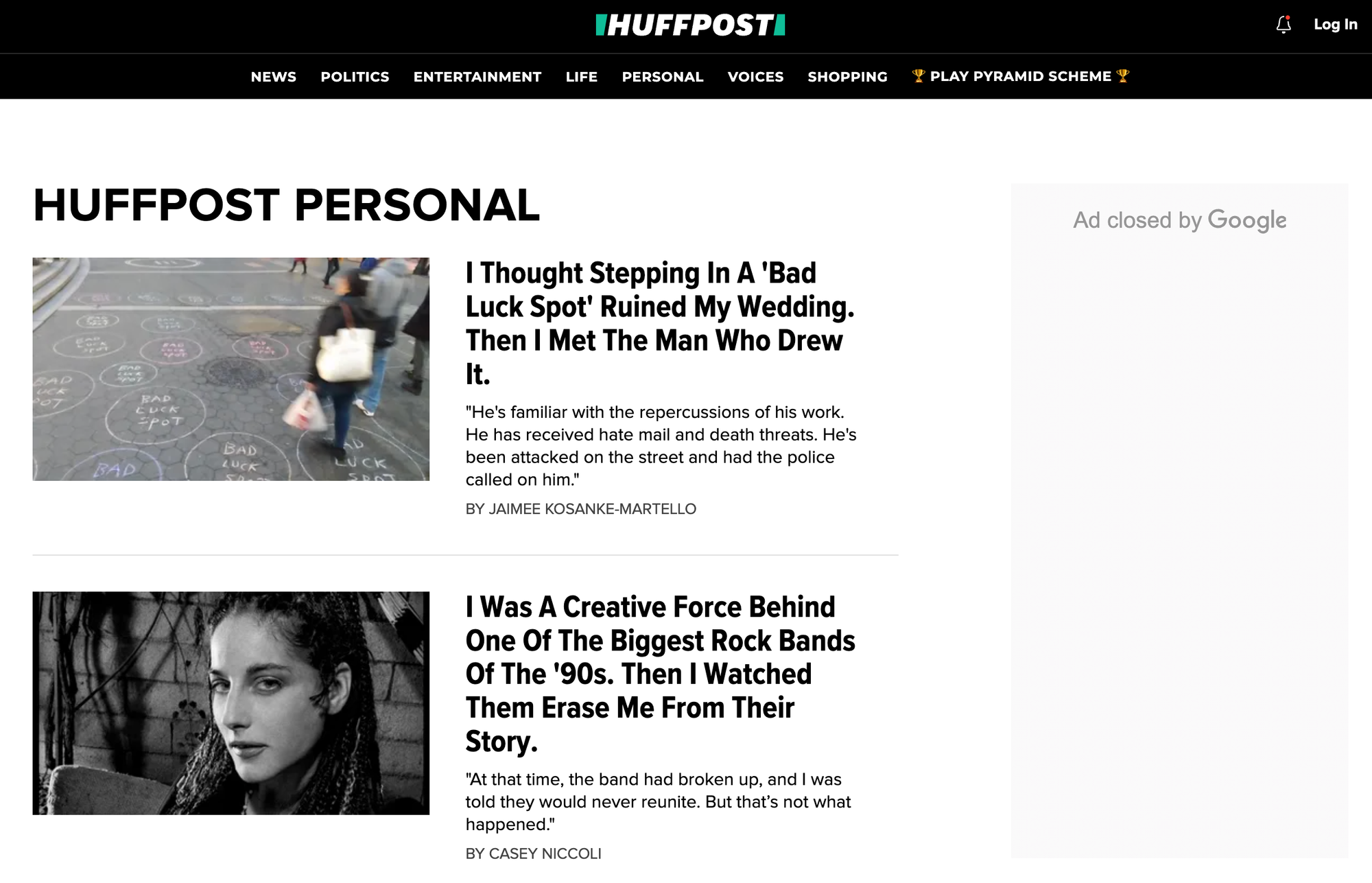
Similarly, Seth Godin, a marketing guru, used his blog to challenge conventional marketing wisdom. His insightful and thought-provoking content established him as a leading voice in the field, attracting a dedicated following and solidifying his reputation as a thought leader. If you too become a thought leader in your field then buyers will trust your brand.
6. It's Low-Cost but High-Impact
Compared to traditional advertising, maintaining a blog requires a relatively small investment but can yield substantial benefits in terms of visibility and engagement. A small boutique could invest in a blog to reach a wider audience without breaking the bank. While there are some costs associated with launching a blog, starting small can be budget-friendly and impactful. Even a single well-performing blog post can continue to drive traffic and leads long after it's been published.
7. You Can Promote Your Own Brand
A blog is a perfect platform for subtle self-promotion. Integrating mentions of your products or services within valuable content is a subtle and effective way to promote your brand.
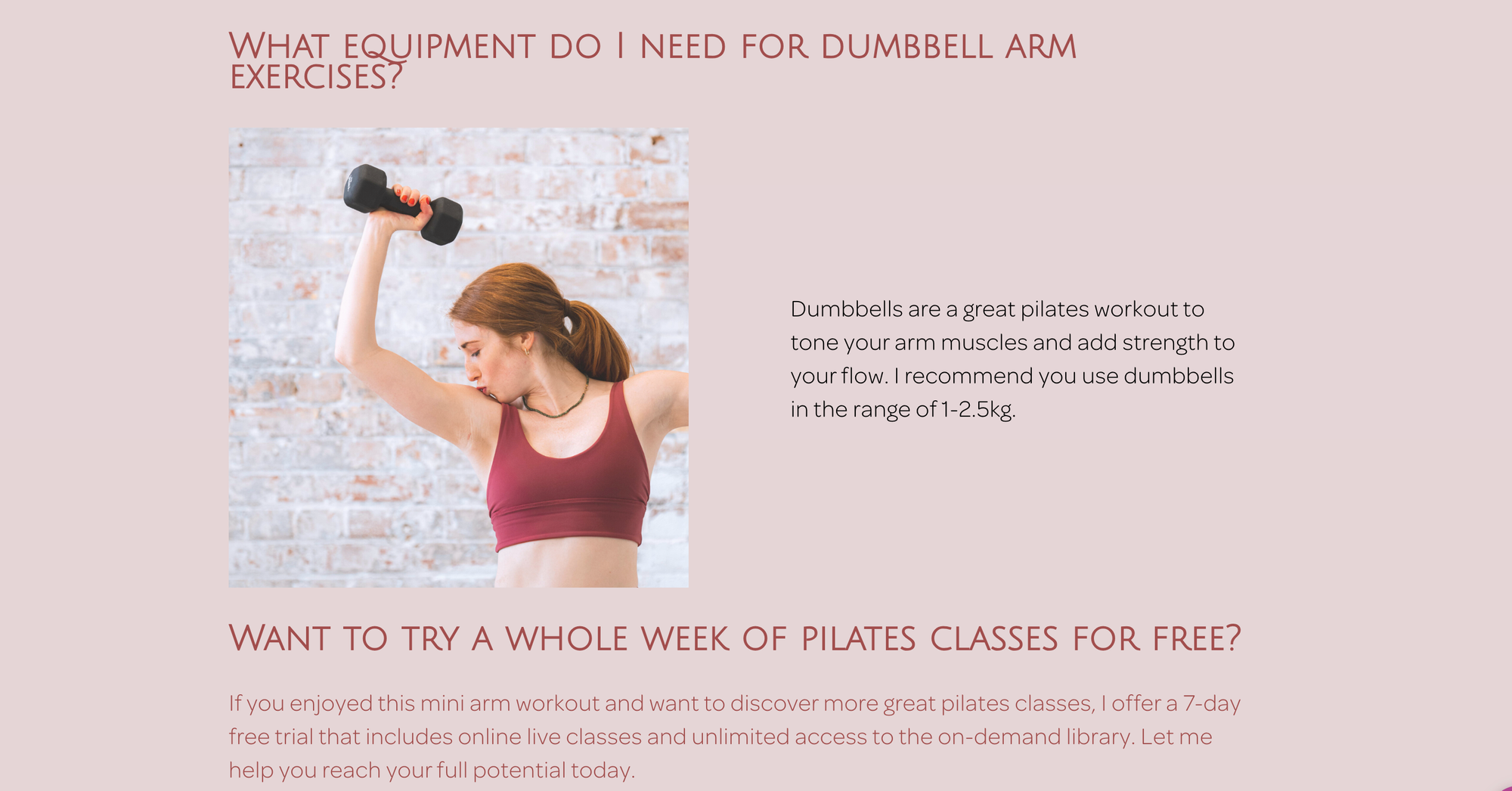
For instance, a fitness center might write about the benefits of different workout routines while subtly highlighting their own classes. As a marketing campaign, blogging feels less like advertising and more like providing helpful advice. The key here is subtlety - have you ever tried to read a blog and been bombarded with 'buy now' buttons and pop-up ads? It is incredibly frustrating and often causes readers to close the page and abandon the blog they were reading. Instead, offer value, guide customers to purchase, but do not be pushy.
8. Blogs Help Develop Relationships with Other Brands and Influencers
Blogging opens doors for collaboration. Featuring guest posts from influencers or partnering with other brands for content helps you expand your reach and credibility.
A skincare brand could collaborate with beauty influencers to create content that reaches new audiences, a fitness brand could collaborate with fitness influencers, a baby toy brand could collaborate with momfluencers, and so on - the list is endless. Forging industry partnerships can lead to cross-promotion opportunities, increasing your visibility and authority in the industry.
9. Blogs Educate Customers on What Your Business or Product Is
Blogs are an excellent educational tool. Use them to explain the features and benefits of your products or services in detail.
If you have an unusual product then you might write comprehensive guides on how to use their products, helping customers make informed purchases. Alternatively, if you sell an everyday product, a blog can be used to highlight why buyers should shop with you and not your competition. Educational content builds trust and positions your brand as a helpful resource.
10. Overall, Blogs Increase Your Brand Awareness
No matter whether you are using your blog to educate customers, foster a community, collaborate with other brands, or drive traffic to your website, each blog post you publish is an opportunity to get your brand in front of potential customers.
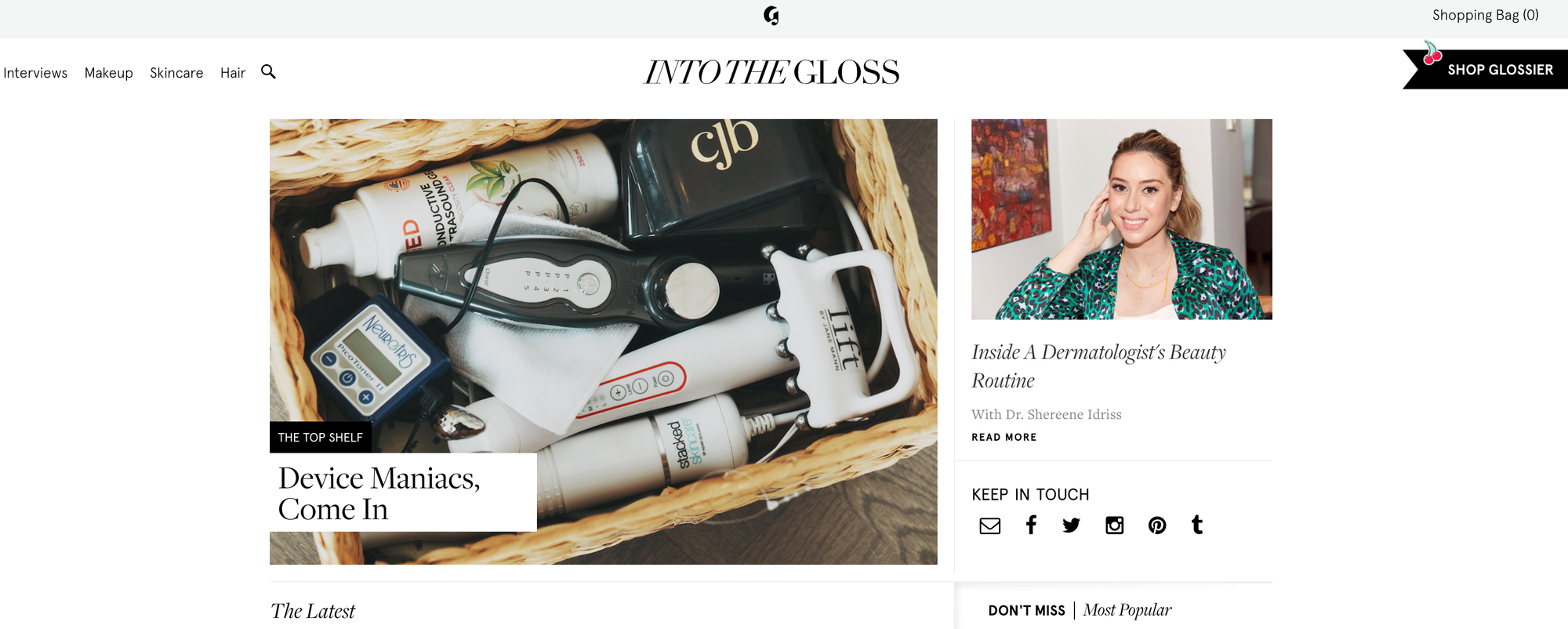
Glossier has become a huge brand name, known for it's fashionable, high-tech beauty products - but it actually started life as a blog named 'Into the Gloss'. The blog was so popular that a whole billion-dollar beauty brand was birthed from it. Although you may be launching the blog off the back of a product rather than the other way around, this goes to show how much a blog can impact your ecommerce brand.
Put simply, sharing content across various channels increases your brand's visibility. The more valuable content you produce, the more your brand is recognized and remembered, and the more potential customers you will have.
How to Create a Blog for Your Business
Convinced to publish a blog for your business? Here are our top tips to keep in mind when creating a blog:
Focus on Your Audience
To start, always write with your ideal customers in mind. Understand their needs, preferences, and pain points, and create content that addresses them.
For example, if you run a pet supply store, your audience will appreciate tips on pet care, product reviews, and training guides, but they would likely not be interested in car recommendations or the latest reality-TV review. Have a clear, targeted focus to attract the right buyers to your business.
Plus, try using a forum or allowing comments so that you can engage with your readers.
Only Publish High-Quality Content
Quality trumps quantity every time. Every post should deliver real value - if a customer is looking for information and advice from your blog post and they struggle to find it, they will be left frustrated and have a negative view of your brand.
So, avoid using AI-generated content or low-effort posts targeted at search engines. Instead, invest time in research and crafting well-written articles that resonate deeply with your target audience. High-quality content is more likely to drive engagement, which is the secret sauce for online success.
Pay Attention to SEO
Although your blog should always be written with users in mind first, SEO is critical for making it discoverable. Use relevant keywords, optimized formatting, and internal linking to optimize your content.
Tools like Google Analytics can help track your performance. A local café might use keywords like "best coffee in [City]" to attract search traffic, and a bookstore might use "best books to read July 2024" to guide readers to it's site. Be sure to regularly update your content to keep it relevant and engaging.
Make Your Blog Easily Accessible
Visibility is key. Promote your blog through your website, social media, and email newsletters. Make sure it's easy to navigate and mobile-friendly. For instance, a home improvement store could include blog links in their product pages and email campaigns, driving traffic to their helpful DIY guides. Use clear calls-to-action to guide readers to your blog.
Content is King, But Context is the Crown
Blogging isn't a fad, it's a foundational marketing strategy. With consistent, high-quality content filled with contextual insights designed to meet your target audience's needs, you're not just creating website traffic - you're establishing yourself as an industry leader. Readers will turn to you for answers, recommendations, and solutions, solidifying your brand as a trusted authority in a competitive marketplace.
For more ecommerce advice, be sure to check out the Whop marketplace. Whop is home to hundreds of communities, ebooks, courses, tools, masterminds and other resources to help you transform your ecommerce brand.
Whether you're manufacturing your own product, dropshipping someone else's, or even selling digital products, Whop has something for entrepreneurs of all levels. So head to Whop today and find the advice and education that you need to grow your business.



